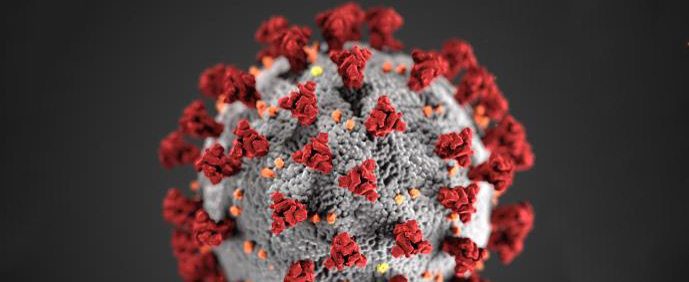Take A Holistic Approach to Antibiotic Resistance
When it comes to infection and our health, there are two schools of thought: the Germ Theory and the Terrain Theory. Understanding the differences is critical, particularly because it involves the use of antibiotics, which should be used sparingly and for the right reasons. So let’s examine this often confusing topic.
 The Germ Theory asserts that, regardless of the state of our health, germs that can cause disease will, indeed, cause disease. That’s because the germ is responsible for our illness and not the overall state of our health. Traditional medical practice calls for identifying and destroying invading germs, including bacteria (but not the viruses that cause cold and flu) through the use of antibiotics. Unfortunately, antibiotics are often over-prescribed and germs are mutating to survive them.
The Germ Theory asserts that, regardless of the state of our health, germs that can cause disease will, indeed, cause disease. That’s because the germ is responsible for our illness and not the overall state of our health. Traditional medical practice calls for identifying and destroying invading germs, including bacteria (but not the viruses that cause cold and flu) through the use of antibiotics. Unfortunately, antibiotics are often over-prescribed and germs are mutating to survive them.
On the other hand, the Terrain Theory, embraced by holistic practitioners from a wide range of medical fields, asserts that germs that can cause disease will do so when the body is more susceptible and that the healthier we are (the terrain) the less likely we will become ill; if we do, we will become less ill. In other words, when the body’s internal environment is at its best, then the immune system functions better. Consequently, the body is less susceptible to illness and has the best defense against “disease causing” germs. In this model, antibiotics are used sparingly and primarily in more critical situations.
It’s important to understand that taking antibiotics does not contribute to building immunity; they are prescribed for treatment, not prevention, and there is the real threat of antibiotic resistance.
Antibiotic Risks and Drug Resistant Disease
When prescribed judiciously by doctors and used properly by patients, antibiotics can save lives by destroying bacteria or stopping it from reproducing. Despite the wonders of this medicine, there are significant problems:
- 20% of people experience side effects including gastrointestinal, kidney, menstrual, and joint abnormalities after taking antibiotics. Risk for side effects increase with each additional ten days of use.
- About 10% of people are allergic to antibiotics.
- In the U.S. more than two million illnesses per year are caused by resistance to antibiotics, resulting in 23,000 deaths when these drugs fail to work.
Protect Your Internal Terrain from Antibiotic Resistance
Healthcare is faced with a dangerous rise in antibiotic resistance, making the more holistic “terrain approach” to battling germs vital to preserving health. Here’s what you can do:
- Take a probiotic supplement, a quality multivitamin, get enough vitamin D, manage stress, get adequate sleep, and eat a variety of whole foods
- Choose organic foods (antibiotic-free meats, non-GMO grains)
- Filter your water (drugs disposed of at landfills can get into groundwater supply)
- Limit your intake of sugar and processed foods (these lower immune function)
The unfortunate truth is the “kill the germ” perspective is failing. We will reach a point where we do not have effective antibiotics. By bolstering the internal terrain, a healthy and vibrant person can mount the immune defenses necessary to protect their health.
Taking an Antibiotic? How Probiotics can Help
It’s fairly common knowledge that antibiotics kill some of the health-promoting bacteria that live within your gut’s complex ecosystem. Taking a probiotic supplement can support the way gut flora work together to keep that ecosystem – and you – healthy.
Antibiotics are used to kill both the pathogenic bacteria that should not be present in the body and the pathogenic bacteria that normally reside in the body in very small numbers but which have “overgrown” for some reason. Unfortunately, while antibiotics are targeting the unwanted bacteria, they often disrupt (or destroy) the balance of “good” gut flora. The result: gastrointestinal upset. Up to 20% of people using antibiotics experience antibiotic-associated diarrhea. The longer you use an antibiotic, the more damage that is likely to occur in the gut ecosystem. Some people can experience severe symptoms that progress to inflammation of the colon, which can become life-threatening.
This is where probiotics come in. With an estimated 80% of your immune system located in your gut, taking a probiotic on a regular basis is a good idea for most people, and especially important while taking antibiotics. Probiotics are live microorganisms that encourage the growth of good gut bacteria, thus strengthening immunity. They can also help prevent antibiotic-induced diarrhea.
Which probiotic is right for you while taking antibiotics? That depends on your age, general health, current symptoms of illness, and the length of time you have been using any antibiotic medication. Probiotics come in different strains of bacteria, and are usually refrigerated to preserve the integrity of the microorganisms. The selection of the strain of probiotic you should take – especially while taking an antibiotic-is very important. Just as important is making sure that you take the probiotic at a different time of day than when you take antibiotics and to continue taking the probiotic even after you have finished the antibiotic. Dr Fenske can determine which probiotic formula and dosing strategy is best for your needs.
[hr]
Guiding Principles




